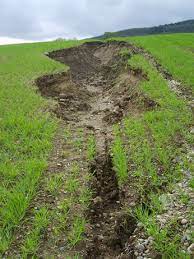One of my favorite classes to teach was Natural Resources Management. I had the privilege of not only helping students learn to identify, describe, and appreciate many aspects of the created world, but also to provide instruction in their wise use.
During the course, we covered forestry, fish, wildlife, surface water and groundwater, as well as soils. Although the last topic usually generated less interest than the others, it is the one that all the rest rely upon. Everything depends on the soil.
In a similar fashion, a society’s morality undergirds and supports every aspect of life. Morals, or the lack thereof, impact business, crime, education, art, entertainment, politics, athletics, and even the military. They influence personal relationships and marriages as well as international affairs. Like the soil does for plants and animals, morality provides the structure, nutrients, and foundation necessary for a nation to prosper.
In years past, some did not understand how valuable our soils were nor how to protect them. Precious productivity eroded into rivers, lakes, and streams. This not only impacted plant growth and animal health, but also water quality.
Soil erosion generally occurs in one of three ways. The most easily detected is massive erosion that happens whenever there is a landslide. Less obvious, but more widespread is rill erosion which begins as small gullies that eventually grow to become large channels cutting up fields. The least apparent is sheet erosion which happens when a uniform soil layer is removed by water or wind.
In similar ways, the morality of a nation, a locality, or an individual can erode. Just as with soil, massive events are rare but also easy to see when someone or some culture takes a major turn for the worse. Some court decisions have enabled types of massive moral erosion.
Much more common but less detectable is the gradual daily wearing away of a society’s standards and values. Little by little, through intentional media pressure or simple personal neglect, individuals and groups become conditioned to tolerate actions and attitudes that would have been immediately addressed and corrected only decades earlier.
Examples of this can be seen in our current toleration for nudity. A generation ago, much of what is now normal fare on television, theatre, and internet would never have been allowed. But bit by bit, more skin was shown, more risqué behaviors introduced and soon several uniform sheets have been removed from our values.
In a similar way, our collective use of language has severely eroded. This is obvious not only in the now common use of expletives and profanity but in blasphemous phrases and comments. Our great grandparents would easily see the deep canyon that has developed separating us from where we once were.
Thankfully, farmers have developed many ways to protect and conserve the soil while still maximizing productivity. In many areas, intentional efforts have helped repair previous erosion and safeguard against future losses.
Just as work is being done to protect our streams, rivers, and soils, we must take active steps to prevent future moral damage while attempting to repair harm already done. Along some waterways, large rocks, known as riprap, protect soils along the banks. For morality, our riprap might be dress codes and language standards to shield ourselves and our children from destructive currents.
In addition, buffer zones are often implemented along streams and rivers to keep soil and pollutants from entering the water. This not only keeps the soil onsite, but also improves water quality for fish and wildlife dependent upon it. For morality, our riparian buffers might include filters on our electronic devices to screen out harmful influences.
Those who work in the natural resource field often remind us that we all live downstream. Since this is also true morally, we each have a responsibility to protect and safeguard the morality of our culture, our children, and ourselves.
Blessings, George
